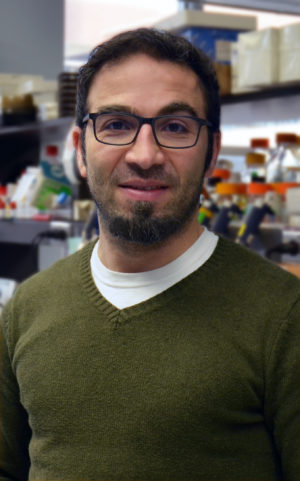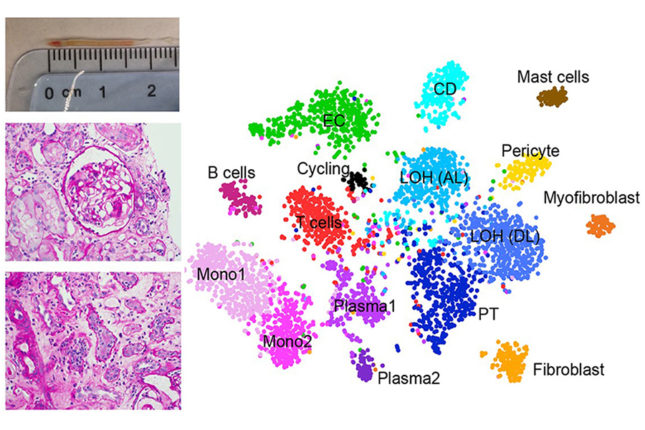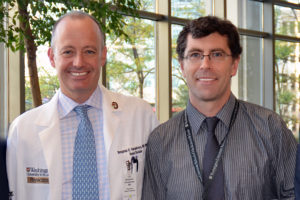
Hani Suleiman, MD, PhD
Congratulations to Division of Nephrology members Hani Suleiman, MD. PhD, and co-PIs Andrew Malone, MB, BCh, and Benjamin Humphreys, MD, PhD, division Chief, who were selected to receive McDonnell Genome Institute (MGI) Pilot Project awards.
These awards are made possible by funds from the Dean of the School of Medicine-WUSM, the Institute of Clinical and Translational Science (ICTS), and a gift from Illumina. The Pilot Grants are meant to help faculty secure future funding through research using next-generation sequencing data produced by MGI and to promote the use of cutting-edge next-generation sequencing technology for genomic and translational research in collaboration with MGI.
A selection committee composed of MGI and WUSM faculty reviewed forty-eight application proposals; only nine were funded. Awards are not only based on a project’s novelty and importance, but also on the overall likelihood that the project will lead to substantial grants incorporating Illumina sequencing technologies.
 Dr. Suleiman’s project is titled Altered tropomyosin isoform repertoire as a regulator of podocyte shape in kidney diseases. Tropomyosins (Tpms) are coiled-coil dimers that form co-polymers along actin filaments and change the biophysical properties of these filaments. Suleiman is studying Tpms in the kidney glomeruli and aims to identify the changes in Tpm isoform patterns in podocytes after injury.
Dr. Suleiman’s project is titled Altered tropomyosin isoform repertoire as a regulator of podocyte shape in kidney diseases. Tropomyosins (Tpms) are coiled-coil dimers that form co-polymers along actin filaments and change the biophysical properties of these filaments. Suleiman is studying Tpms in the kidney glomeruli and aims to identify the changes in Tpm isoform patterns in podocytes after injury.
With the MGI Pilot Project grant, Suleiman will attempt to identify the whole array of biologically active Tpm isoforms in podocytes using the long-reads RNAseq and correlate this data with podocyte health status. He will study Tpm isoforms in whole WT mouse glomeruli, as well as in glomeruli taken from various kidney injury models.
“This pilot study will provide us with important clues about the role of Tpms in podocyte biology,” says Suleiman. “These data will provide strong support for expanding this research to human kidney biopsies in a similar approach that includes the Illumina and PacBio platforms.”

Dr. Benjamin Humphreys (left) and Dr. Andrew Malone, at last fall’s 5,000 Kidney Transplant celebration.
The project of Drs. Malone and Humphreys is titled Defining Host-Donor Chimerism in Kidney Rejection and Developing a Searchable Graphical User Interface Web Tool. “We will explore the role of the innate immune system in organ rejection, specifically the role of donor resident macrophages,” says Dr. Malone.
Donor resident macrophages persist in kidney after transplantation, but it is not known how long they persist or whether they play any role in tolerance or rejection. The project will define host and donor cell chimerism in kidney transplant biopsies by integrating scRNA-seq with de novo single nucleotide variant calling, using parallel exome DNA sequencing to call host and donor variants.
Recognizing the increased importance of merging data science and web development, Malone and Humphreys will also create a website mockup aimed at making scRNA-seq data accessible with “an attractive, interactive graphical user interface” that will allow other researchers the ability to analyze the study’s data. Additionally, the developed code and web model will be available for modification by other MGI investigators who wish to make their own data publicly searchable.
The awardees will present results from their projects at an MGI symposium in the spring of 2019.